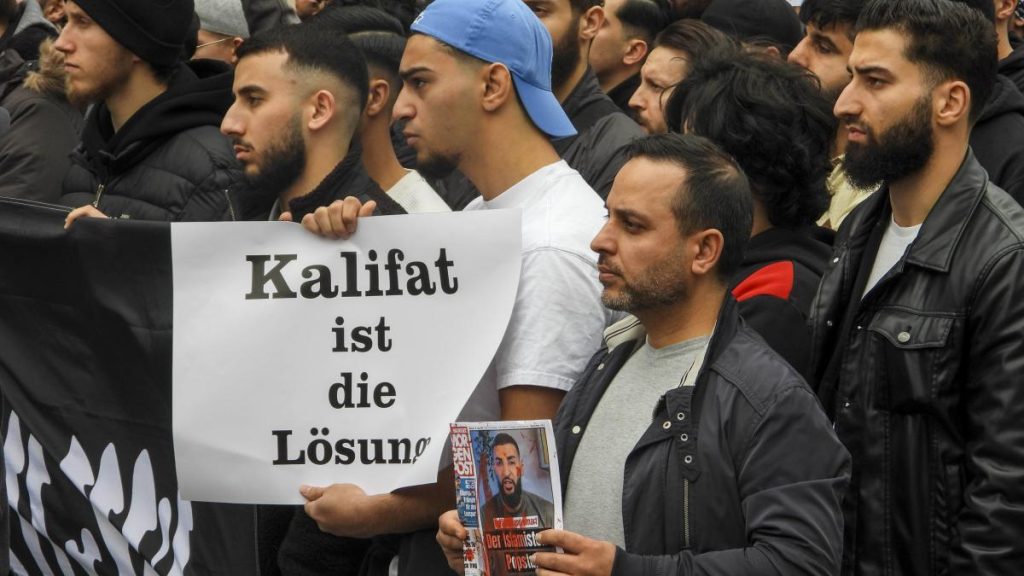More than 1,000 Islamists marched in the Hamburg district of St. Georg, demanding the establishment of a “caliphate” and the implementation of Sharia law. The group behind the demonstration, “Muslim Interaktiv,” is classified as extremist by the German intelligence agency. The participants criticized German politics and media, labeling Germany as a “dictatorship of values.” The Hamburg police secured the demonstration, which was marked by chants of “Allahu akbar” and anti-German sentiment.
Following the Islamists’ demonstration, members of the Bundestag called for tougher measures against groups like “Muslim Interaktiv.” The Green Party’s Lamya Kaddor emphasized the need for banning organizations affiliated with Hizb ut-Tahrir, to which “Muslim Interaktiv” is closely linked. She urged Interior Minister Nancy Faeser to implement a ban on such groups as soon as possible. The rise of online radicalization during the COVID-19 pandemic has been a concerning development, with influencers playing a significant role in the process.
Various political parties, including the AfD and FDP, demanded action against the spread of extremist ideologies by Islamist influencers. FDP deputy leader Konstantin Kuhle stressed the importance of expelling individuals whose actions endanger Germany’s democratic values. CDU’s Alexander Throm called for the expulsion of those who advocate for a caliphate and denigrate Germany as a “dictatorship of values.” He also proposed changes to asylum and residency laws to address the issue of extremism more effectively.
Interior Minister Faeser condemned the Islamists’ demonstration as “deeply troubling” and highlighted previous bans on terrorist organizations like Hamas. She affirmed the government’s commitment to monitoring extremist groups and cracking down on criminal activities that incite hatred and violence. While upholding the right to assemble peacefully, police in Hamburg confirmed that the demonstration did not pose a significant threat to public safety, allowing it to proceed as planned.
The Hamburg State Office for the Protection of the Constitution and the Federal Office for the Protection of the Constitution have identified “Muslim Interaktiv” as an organization with extremist affiliations. The group promotes anti-government sentiments, criticizes integration policies as coercive assimilation, and aligns itself ideologically with banned groups like Hizb ut-Tahrir. The resurgence of Islamism in Germany, particularly through social media, has raised concerns among security officials and policymakers at both federal and state levels.
The growing influence of Islamist groups on social media platforms has become a focal point for counterterrorism efforts. Politicians and security experts warn against the spread of radical ideologies and advocate for stronger measures to combat extremism in all its forms. As Germany grapples with the challenges posed by radicalization and extremist movements, the need for coordinated action and vigilance remains paramount to safeguarding the country’s democratic values and national security.















